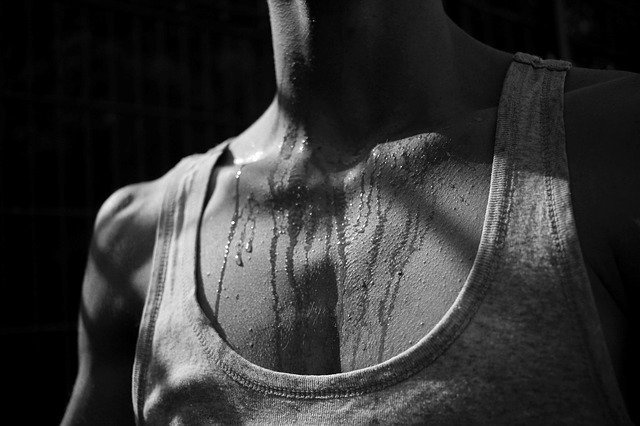Table of Contents
Diabetic Night Sweats
Low blood glucose levels, which can occur in persons taking insulin or diabetic drugs, are a common cause of night sweats. When your blood glucose levels drop, you release excessive adrenaline.
It leads to diabetic night sweats caused by high blood sugar. Sweating stops when your blood glucose levels return to a normal range. When you have diabetes, waking up in the middle of the night feeling shivery and soaked in sweat is not uncommon.
The fact is that even in chilly temperatures, you might become sweaty, which makes it difficult to sleep peacefully.
What Causes Diabetic Night Sweats
The body utilizes the energy provided by the carbohydrates consumed during the day to repair and rebuild itself at night. In the absence of sufficient carbohydrates in your diet, the body’s thermoregulatory mechanism may become dysfunctional.
The most critical step in avoiding night sweats is to keep track of your symptoms before bed. If your low blood sugar is detected early, it may be possible to cure it fast by taking a simple carbohydrate such as crackers or a piece of fruit.
In many cases, the quantity of sweat you produce is directly linked to your blood sugar levels, which means that the longer your blood sugar levels remain low, the more sweat you will create.
Managing Night Sweat In Diabetics
Most of the time, drugs are required to treat excessive perspiration. These may be associated with adverse side effects and varying levels of efficacy. While most treatments are topical or tablet, Botox (botulinum toxin injection) is a standard treatment option.

Controlling blood glucose levels is the most effective treatment of night sweats induced by low blood glucose. Sometimes all it takes is altering your workout schedule or having a snack before night to make a difference.
Your doctor can assist you in changing your diet, physical activity, or medicines to lessen or eliminate night sweats.
Effects Of Diabetic Night Sweats
People with diabetes frequently have night sweats due to low blood sugar levels. The decrease in blood glucose levels will lead to various symptoms, including headaches and excessive sweating.
These can cause disturbed sleep due to discomfort and moist bedding. They will almost certainly leave you feeling less than refreshed in the mornings. You should consult your doctor if you are experiencing diabetic night sweats and are worried about their cause.
They will provide you with guidance or suggest that you change your prescription. Diabetes is among the most prevalent reasons for night sweats, and it is also amongst the most serious.
However, numerous medical conditions can cause extreme sweating during the night, so it is always advised to seek medical attention if you are concerned.
Top 3 Blankets For Diabetics Night Sweats
- Alpaca and Sheep Wool Blanket
- GOHD Super Cozy 100% Bamboo Fiber Blanket
- Bedsure Waffle Cotton Blanket Bamboo
Conclusion
When you have diabetic night sweats, it might feel that no matter what you do to attempt to preclude nocturnal hypoglycemia, the sweats will continue to occur. Rather than a synthetic one, a natural fiber blanket can magically influence your sleep quality.
Natural fiber bedding may aid in the regulation of your body temperature and absorb moisture, transferring it away from your body. Since wool is more absorbent than other natural fibers such as feathers or down, it is particularly well-known for its capacity to keep you feeling dry and comfortable throughout a hot night.